Current context:
In 2018, it was reported that 2,750 prisoners availed of addiction counselling services.[316]
The IPS is developing a new drugs strategy.[317] Recommendations from a previous report will inform key components of the strategy.[318] The IPS has sought agreement with the Department of Health to jointly seek funding to develop a therapeutic community on a pilot basis.[319]
Figures at the end of April 2019 showed that there were 314 prisoners who had been referred to the addiction counselling service and were still awaiting treatment at that point in time.[320] Issues with accessing treatment have been highlighted by Cloverhill Prison Visiting Committee:
At present there is one Addiction Counsellor in the Prison to service 400 prisoners. These prisoners are most vulnerable and most in need of professional care and counselling. We have met the busy Addiction Counsellor. We would urgently request the service of an additional drug counsellor. The benefits of this would be far reaching in the treatment of addiction and also prevention with the additional benefits of this given the volume of prisoners in custody with drug and other addictions.[321]
Indicators for Standard:
Indicators for Standard 14
Indicator S14.1: Provision of addiction counsellors per prison in 2019 and numbers on waiting lists.
There are 19.8 WTE addiction counsellors posts filled across the prison estate.[322] A breakdown of the ratio of addiction counsellor to number of prisoners is provided below.
Addiction counsellors, by prison[323]
| Prison |
Addiction counsellor posts (WTE) |
Counsellor–prisoner ratio |
|---|
| Mountjoy |
4.2 |
1:236 |
| Dóchas (female) |
1.2 |
1:88 |
| Loughan House |
1 |
1:140 |
| Shelton Abbey |
0.8 |
1:144 |
| Wheatfield |
32 |
1:172 |
| Cloverhill |
1 |
1:431 |
| Castlerea |
2 |
1:170 |
| Portlaoise |
0.5 |
1:582 |
| Midlands |
2 |
1:423 |
| Limerick |
1.9 |
1:125 |
| Cork |
2 |
1:148 |
Indicator S14.2: Number of places on drug treatment programmes available in prison and the number of those on waiting lists.
The Drug Treatment Programme is a nine-week programme with nine places. There are up to six programmes being facilitated in Mountjoy on an annual basis.[324]
Indicator S14.3: Availability of non-opiate-based treatment services in prisons in 2019.
Information by the IPS indicates that the needs of individuals are prioritised and form the basis of a clinical response.[325]
Indicator S14.4: Number of prisoners with access to a needle exchange programme.
Currently, there are no needle exchange facilities across prisons in Ireland.[326] By contrast, harm reduction services in the community include needle exchange, which is available from fixed sites, mobile units and outreach work provided by regional authorities and community-based organisations.[327]
Analysis
While there has been a shift towards a public health approach to substance misuse in Irish society, as evidenced by the current National Drugs Strategy,[328] the lack of access to addiction counsellors alongside the limited number of drug treatment beds within prisons is of concern. The low addiction-counsellor to prisoner ratio appears to be an ongoing issue for Cloverhill Prison. In Denmark, prisons have introduced a treatment guarantee, whereby prisoners who request treatment should be provided within two weeks.[329] This is something to work towards in Ireland.
It is also of concern that the prison healthcare system is separate from community health; these should be interconnected, particularly given the high number of prisoners with addiction issues committed for short-term prison sentences. Alternatives to imprisonment involving access to treatment, where needed, should be considered for this cohort. IPRT welcomes the integrated community service model, which has been rolled out nationally and which allows one-third of community service order hours to be spent on accessing counselling/addiction treatment.[330]
Further analysis is needed on drug treatment options available to people upon release from prison. Overall, transfer of responsibility of prison healthcare to the Department of Health would help facilitate a more seamless transition from prison back to the community.
Status of Standard 14: Mixed

